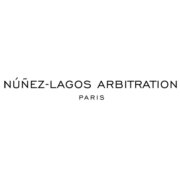Best Renewable & Alternative Energy Lawyers in France
Share your needs with us, get contacted by law firms.
Free. Takes 2 min.
Or refine your search by selecting a city:
List of the best lawyers in France
About Renewable & Alternative Energy Law in France
Renewable and alternative energy law in France covers the framework of laws, regulations, and policies that govern the production, distribution, and consumption of energy from renewable sources. France is a leader in encouraging clean energy solutions and is committed to reducing its carbon emissions under both European Union directives and international treaties like the Paris Agreement. French energy law covers solar, wind, hydro, biomass, geothermal, and other alternative energy sources, shaping how these projects are developed and operated within France.
Why You May Need a Lawyer
Navigating the legal landscape related to renewable and alternative energy in France can be complex. You may require legal assistance in situations such as:
- Securing permits and authorizations for renewable energy projects
- Negotiating contracts for land use, grid connection, or energy purchase agreements
- Understanding and applying for government subsidies or incentives
- Addressing disputes with local authorities or neighboring property owners
- Complying with changing EU or French regulatory requirements
- Dealing with intellectual property issues regarding energy technologies
- Managing environmental compliance and impact assessments
- Establishing or investing in renewable energy companies or cooperatives
- Advising international investors or partners about the French market
Local Laws Overview
France’s renewable energy sector is guided by national laws, European Union directives, and regional policies. Key legal aspects you should be aware of include:
- Energy Transition Law (Loi de Transition Énergétique) - This law sets targets for renewable energy in the national mix and encourages sustainable development.
- Feed-in Tariffs and Subsidies - France offers various incentives to support the development of renewable energy projects, including guaranteed prices for electricity produced.
- Permitting and Grid Connection - Any new renewable energy project must comply with strict permitting processes, environmental impact assessments, and grid connection requirements managed by electricity network operators.
- Zoning and Land Use - Local planning laws determine where and how renewable energy infrastructure can be built, including wind farms and solar farms.
- European Union Directives - France is bound by EU renewable energy targets and must regularly update its policies to remain in compliance.
- Corporate Power Purchase Agreements (PPAs) - Recent legal changes have enabled the direct sale of renewable electricity from producers to corporate consumers.
Frequently Asked Questions
What types of renewable energy projects are most common in France?
Solar power, wind energy, and hydropower are the most widely developed renewable energy sources in France, with growing investments in biogas and geothermal projects.
Do I need a permit to install solar panels on my property?
Small-scale residential solar installations typically require a declaration to the local town hall. Larger or commercial projects generally need a building permit and possibly an environmental impact assessment.
What kinds of subsidies or incentives are available for renewable energy projects?
France supports renewable energy through feed-in tariffs, investment grants, and tax credits. The specific schemes depend on the energy source and the size of the project.
What legal issues might arise with wind farm development?
Common legal concerns include zoning, neighbor or community opposition, impact studies, noise regulations, and grid connection agreements.
Is it possible for a private company to sell renewable energy directly to consumers?
Yes, legislation now allows corporate power purchase agreements, enabling private companies to buy electricity directly from renewable energy producers.
How are disputes about renewable energy projects resolved?
Disputes can be handled through administrative appeals, mediation, or court litigation, depending on the nature of the complaint and the parties involved.
Are there restrictions on foreign investment in French renewable energy?
Generally, foreign investors are welcome but must comply with French corporate and energy regulations. Certain critical infrastructure projects may be subject to national security review.
Do businesses in France have renewable energy obligations?
Large electricity consumers may be subject to obligations regarding renewable energy sourcing and efficiency under national or EU law.
What role do environmental impact assessments play in project approval?
Most medium and large-scale renewable energy projects require an environmental impact assessment that evaluates potential effects on the local environment and populations.
How does France’s renewable energy law interact with EU regulations?
French law is harmonized with EU directives, setting minimum standards and targets. French regulations may go further to support the nation's energy transition goals.
Additional Resources
For more information or specialized guidance, you can consult these organizations and bodies:
- Ministry for the Ecological Transition (Ministère de la Transition Écologique) - Overseeing national energy policy and regulations
- Commission de Régulation de l’Énergie (CRE) - France’s independent energy regulatory commission
- ADEME (Agence de la Transition Écologique) - Supporting and funding environmental and energy transition projects
- France Énergie Éolienne (FEE) - Trade association for wind energy sector
- SER (Syndicat des Énergies Renouvelables) - National trade association for all renewable energy industries
- Local Chamber of Commerce and Industry - May offer local guidance on renewable energy business registration
Next Steps
If you need legal assistance in the field of renewable and alternative energy in France:
- Define your project or issue as clearly as possible, including location, energy type, and scale
- Gather any relevant documentation such as land titles, business registration details, or correspondence with local authorities
- Consult a lawyer specializing in energy law or with experience in renewable energy projects
- Check if your question can be addressed by a government agency or local authority before seeking specialized legal help
- If you are an investor or foreign entity, consider engaging legal and technical experts familiar with cross-border energy projects
- Monitor updates to local laws and regulations, as the field of renewable energy is evolving rapidly in France
Taking these steps will help ensure your project or legal issue is handled efficiently and in compliance with all applicable French and EU regulations.
Lawzana helps you find the best lawyers and law firms in France through a curated and pre-screened list of qualified legal professionals. Our platform offers rankings and detailed profiles of attorneys and law firms, allowing you to compare based on practice areas, including Renewable & Alternative Energy, experience, and client feedback.
Each profile includes a description of the firm's areas of practice, client reviews, team members and partners, year of establishment, spoken languages, office locations, contact information, social media presence, and any published articles or resources. Most firms on our platform speak English and are experienced in both local and international legal matters.
Get a quote from top-rated law firms in France — quickly, securely, and without unnecessary hassle.
Disclaimer:
The information provided on this page is for general informational purposes only and does not constitute legal advice. While we strive to ensure the accuracy and relevance of the content, legal information may change over time, and interpretations of the law can vary. You should always consult with a qualified legal professional for advice specific to your situation.
We disclaim all liability for actions taken or not taken based on the content of this page. If you believe any information is incorrect or outdated, please contact us, and we will review and update it where appropriate.
Browse renewable & alternative energy law firms by city in France
Refine your search by selecting a city.

















